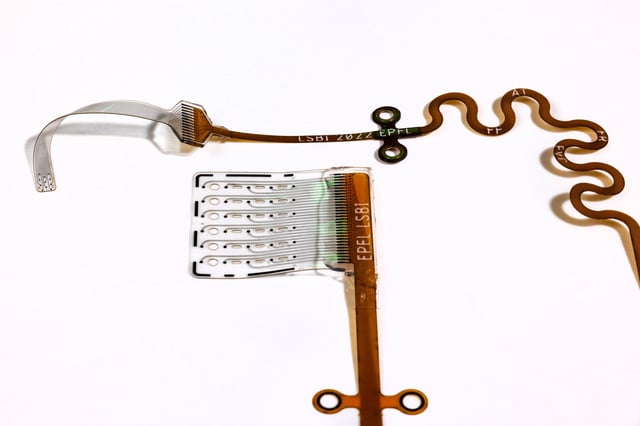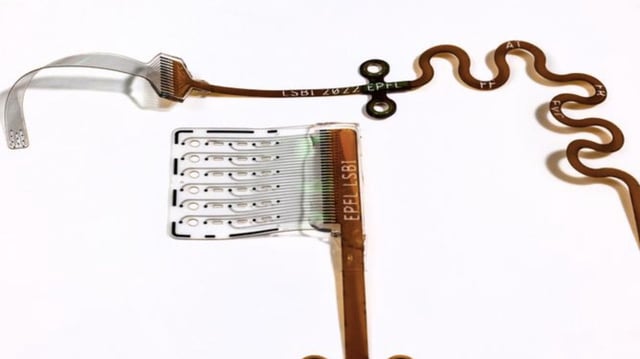Overview
- EPFL's soft auditory brainstem implant (ABI) uses micrometer-scale platinum electrodes embedded in silicone, allowing it to conform to the brainstem's curved surface.
- The implant demonstrated high-resolution 'prosthetic hearing' in macaques, with the animals responding to electrical stimulation as they would to natural sounds.
- The soft design improves tissue contact, reducing off-target nerve activation and common side effects like dizziness and facial twitching seen in rigid ABIs.
- Long-term testing in macaques showed no discomfort or electrode migration over several months, addressing key challenges of current ABI technologies.
- Researchers are preparing for intraoperative human trials in Boston to evaluate reduced stray nerve activation, a critical step toward clinical translation.

